USA win women's 4x100m to secure third relay gold
ByEmma SmithBBC Sport journalist and Max ChestertonBBC Sport journalist
A lot can change in a year.
Great Britain brought back five relay medals and a renewed sense of optimism from the Paris Olympics.
Just over 12 months later, it's a different tale in Tokyo, where the British team failed to win a single relay medal for the first time in 22 years.
On Sunday, Britain finished fourth in the women's 4x100m and sixth in the men's 4x400m.
Earlier in the week they recorded a DNF [did not finish] in the men's 4x100, and came last in the women's 4x400m heat and fifth in the 4x400m mixed relay.
So, what has gone wrong?
In the men's 4x100m, Eugene Amo-Dadzie blundered and set off too early for the handover, leaving Jona Efoloko stranded with the baton.
"You can see Jona Efoloko is shouting 'hand' and essentially he is asking for Eugene Amo-Dadzie to put his hand out, but you can see he's gone too soon," said former sprinter Jeanette Kwakye.
"What's frustrating about that is sometimes people say it's the responsibility of the incoming runner but there are measured steps and they practise so much.
"Really and truly there isn't an excuse," she added.
'Not good enough'
GB women through to finals but men blunder handover
London 2012 gold medallist Greg Rutherford called it "heartbreaking" for a team that bagged bronze in Paris just a year ago.
He feared Amo-Dadzie felt the pressure and became "overwhelmed" in the moment, despite clocking a personal best 9.87 seconds in the 100m three weeks before the championships.
"The changeovers were beautiful from one to two and two to three," Rutherford said. "He's just gone too soon.
"We have got to September, late in the season, and it is like everyone has forgotten how to pass the baton," he added.
There was similar frustration in the women's 4x400m - a team accustomed to success off the back of winning silver or bronze at nine of the past 10 world championships.
The quartet of Poppy Malik, Yemi Mary John, Nicole Yeargin and Victoria Ohuruogu finished last in their heat, which was deemed "not good enough" by Rutherford.
"Yes, it's tough and conditions are hard, but when there's that much focus on an event you can't come last in your heat at a world championships.
World indoor champion Amber Anning, who won bronze as part of the 4x400m squad at the Olympics, was left out of the heat. And Laviai Nielsen, the fourth member of that medal-winning squad, was not selected for Tokyo.
"The four girls that went out there, they should be able to navigate a qualification. From my point of view, it's genuinely not good enough."
"We would expect them to qualify," Dame Jessica Ennis-Hill added. "We've seen the success of the team in previous years. Where did it go wrong for that Great British team?"
Dina Asher-Smith, speaking to BBC Sport after Great Britain missed out on the podium in the women's 4x100m relay, said: "We gave it our all. Obviously, we wanted gold, that's all we aim for.
"We will go back and look back and analyse. It's not necessarily a disappointment. It's just about learning, going forward and increasing it next time.
"We always want to be on top of the podium and I'm speaking for every relay team out there. We have high expectations, so what were going to do especially pushing forward to LA is work hard stay disciplined and come out and smash it."
Great Britain and Northern Ireland finished on five medals overall - three silvers and two bronzes - and 21st in the medal table. It is their worst showing at a World Championships since Paris 2003.
At the last World Championships, in Budapest in 2023, the British team won 10 medals - their joint highest haul.
How do you run the perfect relay?
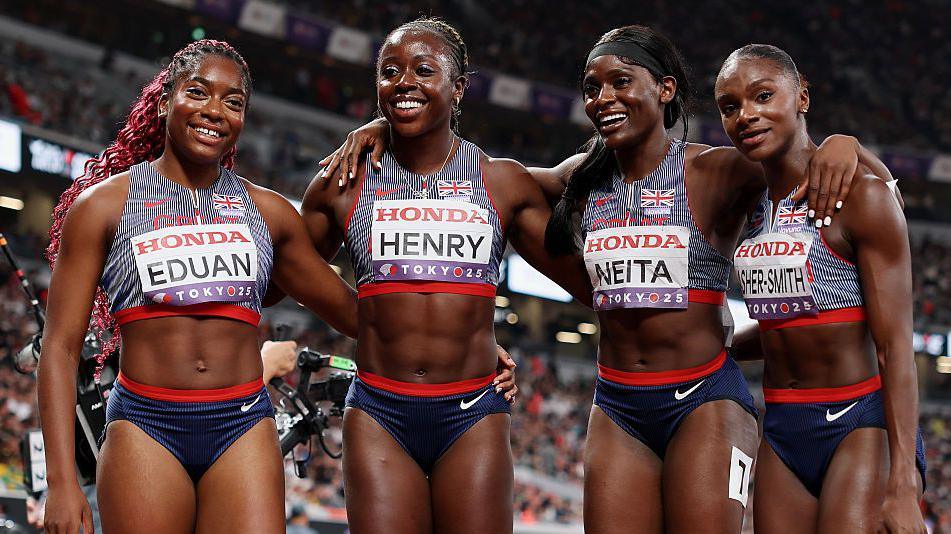 Image source, Getty Images
Image source, Getty Images
Success Eduan, Desiree Henry, Daryll Neita and Dina Asher-Smith qualified for the women's 4x100m relay
Darren Campbell, who won gold as part of Great Britain's 4x100m relay team at the 2004 Olympics in Athens, is now the head of sprints, relays and hurdles for UK Athletics.
Ahead of Tokyo, he told BBC World Service's More Than The Score podcast that "attitude, discipline and relay skills" are the key ingredients for relay success.
"I would say percentage wise, we are up there for constantly challenging," Campbell said. "We are very good at what we do but in relays things go wrong.
"If you just have raw speed with no hand skills, we are not going to get the baton around. You need a high level of speed, beautiful slick hand changes, discipline and good acceleration.
"The incoming runner shouts 'hand', the hand goes back quickly and the baton is in the hand pretty much straight away. That is all you can ask of the athletes."
How much funding does athletics get?
British Athletics were awarded £20.45m in funding from UK Sport for the four-year cycle to the 2028 Los Angeles Olympics - a reduction of £1.725m from Paris.
Jack Buckner, CEO of UK Athletics, said the organisation was "disappointed" with the decision, adding their recent medal hauls "deserved a higher level of investment".
It is not known how much each athlete receives in funding or how much money is allocated to each event but Rutherford said he expected better given the resources available to the relay sides.
"We put so much into the relay in this country," he said. "We employ multiple people to make sure that we can get this right and it has gone really, really poorly today."
Sally Munday, chief executive officer of UK Sport, said funding should not be looked at as either a "reward" or a "punishment" for performances at the Paris Games.
"The decision that we've made against all the sports is we've looked at their potential," she said.
Athletes are also funded through National Lottery grants, called Athlete Performance Awards (APAs), which are intended to allow them to focus on their sport.
Ohuruogu thanked the National Lottery in her post-race interview, saying: "I just want to say a huge thank you to the National Lottery and to the Team GB staff.
"Unfortunately, we couldn't deliver today but overall it's been a good championships for Team GB, so we're really grateful."
This article is the latest from BBC Sport's Ask Me Anything team.
What is Ask Me Anything?
Ask Me Anything is a service dedicated to answering your questions.
We want to reward your time by telling you things you do not know and reminding you of things you do.
The team will find out everything you need to know and be able to call upon a network of contacts including our experts and pundits.
We will be answering your questions from the heart of the BBC Sport newsroom and going behind the scenes at some of the world's biggest sporting events.
Our coverage will span the BBC Sport website, app, social media and YouTube accounts, plus BBC TV and radio.

 Movie
Movie 2 months ago
342
2 months ago
342 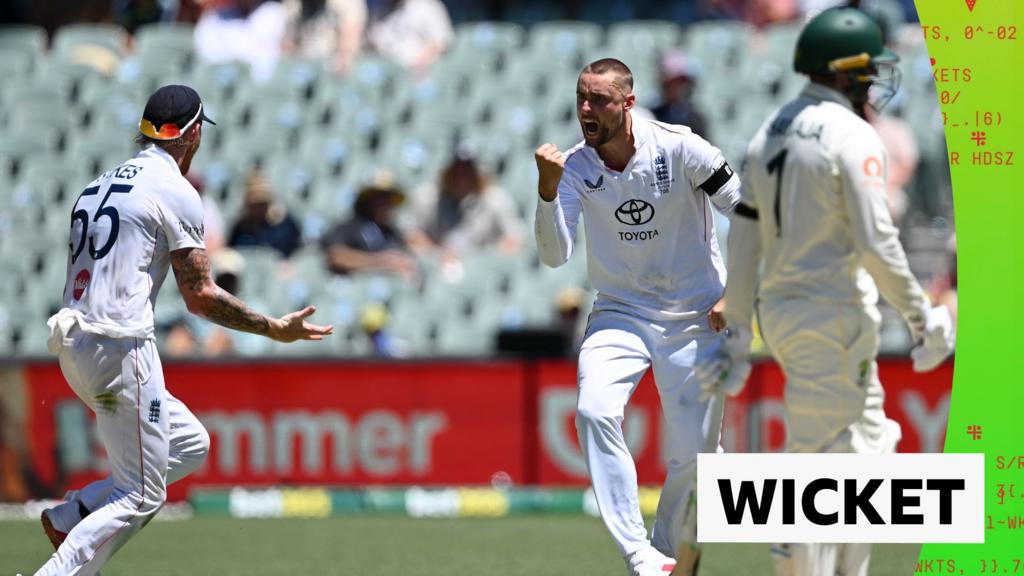
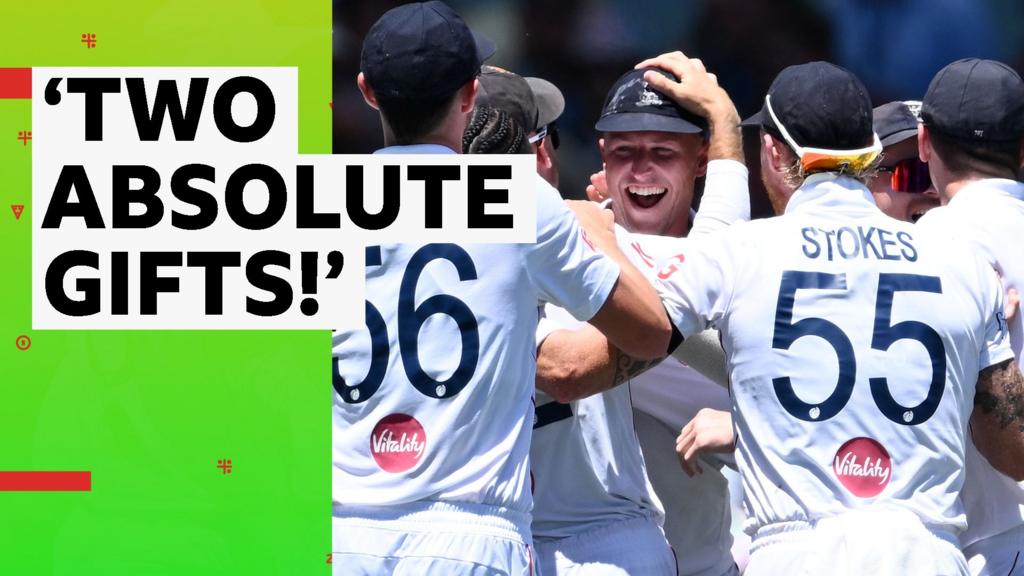
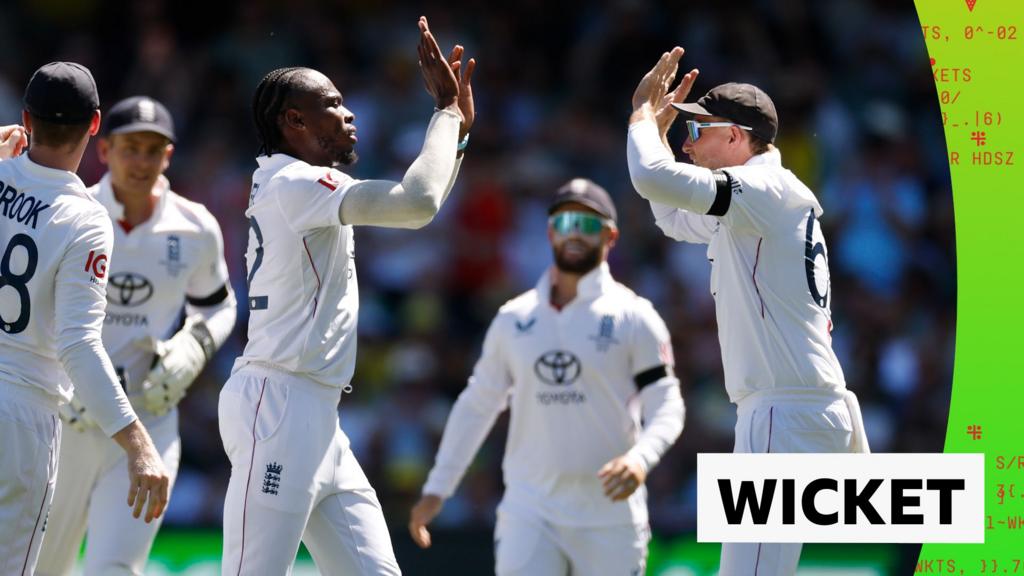
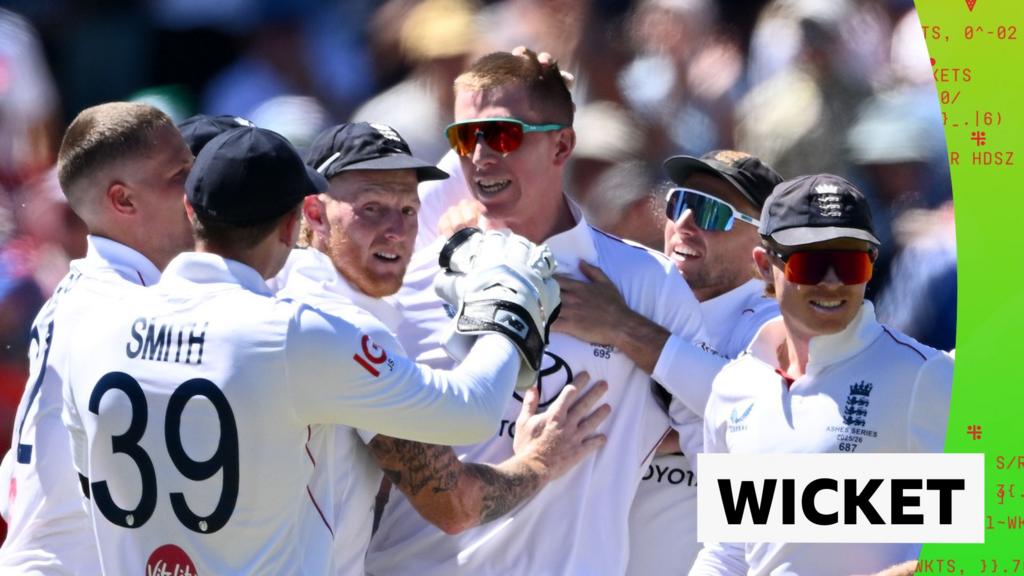
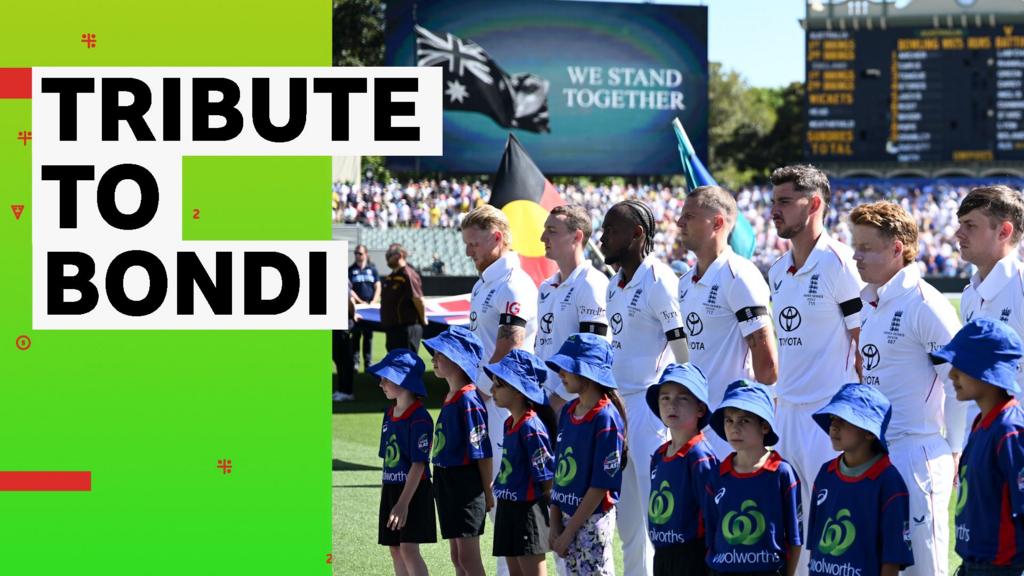
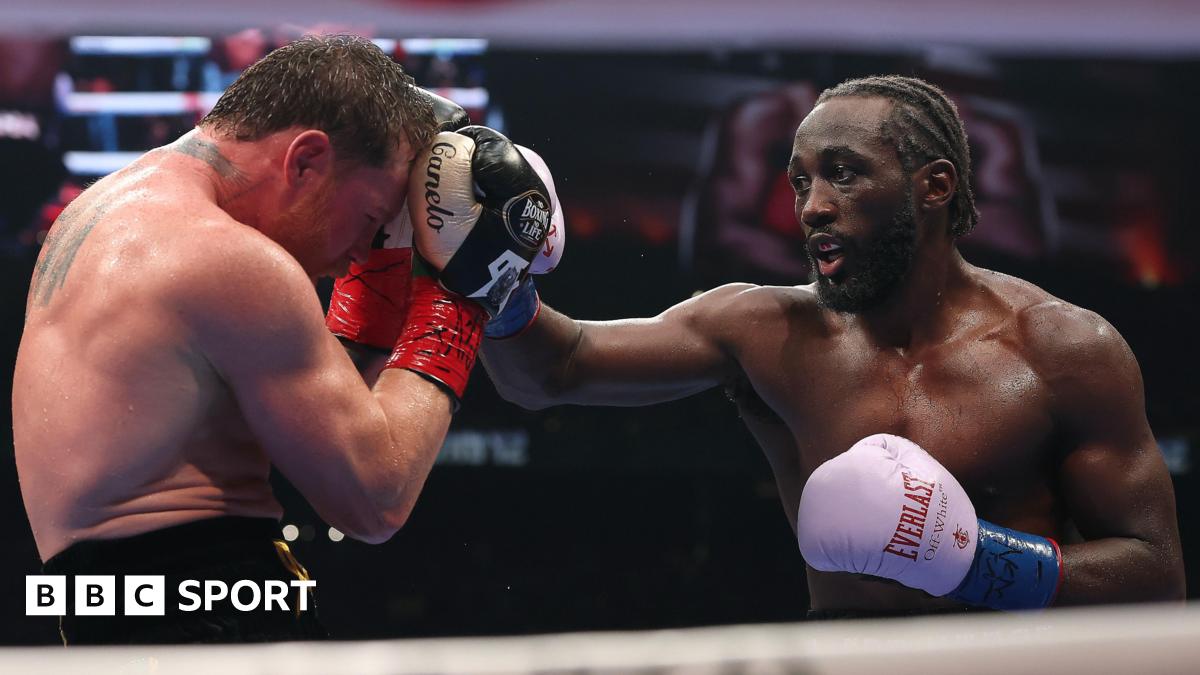
![Presidents Day Weekend Car Sales [2021 Edition] Presidents Day Weekend Car Sales [2021 Edition]](https://www.findthebestcarprice.com/wp-content/uploads/Presidents-Day-Weekend-car-sales.jpg)




 English (United States)
English (United States)